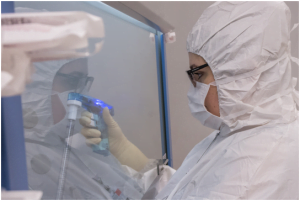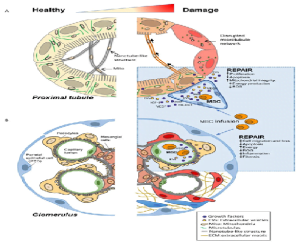Bypassing animal experiments for ethical reasons, the biomedical community is plunging into this Grand Canyon of animal cell culture for adding more relevance to their clinical research, and what’s better than knowing how you can use this technology in various fields of biomedical research!
Here are some areas where a researcher can use animal cell culture:
Model Systems:
Animal cell culture provides a good model system for studying cell biology and biochemistry, environmental effects on cell metabolism, nutritional studies, effects of infectious agents on cells, drug effects on cells, etc.
Testing of Toxicity:
Animal cells are widely used to study the effects of new drugs, cosmetics, and other chemicals. In this regard, skin, liver, and kidney cells are extensively used for toxicity testing.
Drug Screening and Development:
Animal cell culture-based assays have become very significant for the pharmaceutical industry for cytotoxicity testing and high throughput potential drug-lead compound screening. These cell culture tests are mostly done in well plates as flasks will not be the optimum choice of culture growth.
Cell-Based Product Manufacturing:
Animal cell culture can be used to produce many important products like vaccines, antibodies and other protein products. The large-scale production of vaccines includes vaccines for polio, measles, chickenpox, rabies, and hepatitis B.
3D Cell Culture and Bioimprinting:
A widely used 3D model is skin culture models that are extensively used in research on cosmetic effects or treating burns and ulcers. Furthermore, stem cells that have the potential to differentiate into a variety of different cell types, are recently used for developing 3D models of different lineages to be used in medical therapeutics. Animal cells are also used as a replacement for tissue and organ transplants. However, testing is underway on artificial organs such as the pancreas, liver, and kidney.
Cancer Research:
Animal cell culture models are used popularly for cancer research. Research can be done by inducing carcinogenic potential in normal cells to mimic cancer cell biology or use normal cell culture to compare with cancer cell lines in-vitro. Cultured cancer cells can also help in determining suitable drugs and methods for selectively destroying different molecular subsets of cancer.
Virology Study:
One of the earliest uses of cell culture is the replication of viruses for use in vaccine production and virology research. Animal cell cultures are also used in the detection and isolation of viruses in cases of viral disease mechanism study as well as basic research on different types of viruses and their life cycle.
Genetic Counselling:
Cultured cells isolated from patients can be a very good indicator of genetic or metabolic disorders. These cells can be examined for abnormalities in their chromosomes and genes using karyotyping, chromosome painting and other molecular techniques.
Gene Therapy:
Gene Therapy is an experimental technique that involves insertion of genetically altered genes into cells using rDNA technology for replacing defective genes in the body. The ability to transfect cultured cells with new genetic material helps researchers to study protein production, differential expression and other disease specific studies.
Now that the applications are covered, it is time to put the animal cells to culture! And for procuring high quality of viable cells, Kosheeka welcomes you to visit https://kosheeka.com/ and put your queries on info@kosheeka.com



